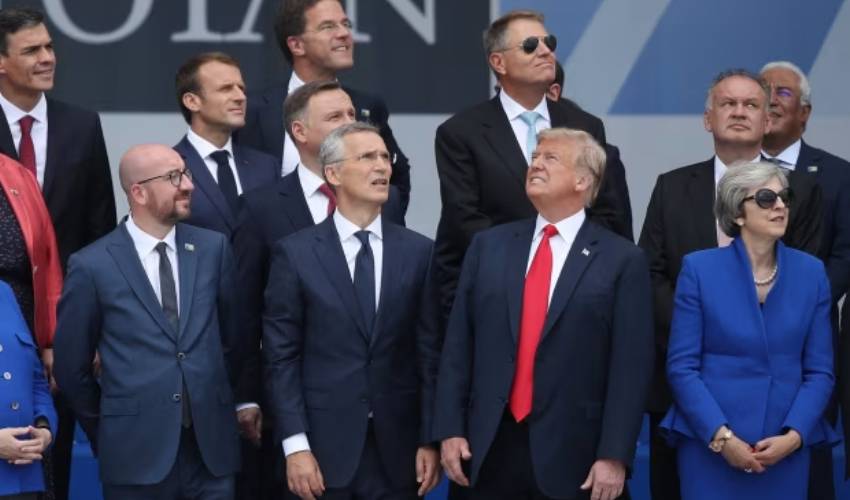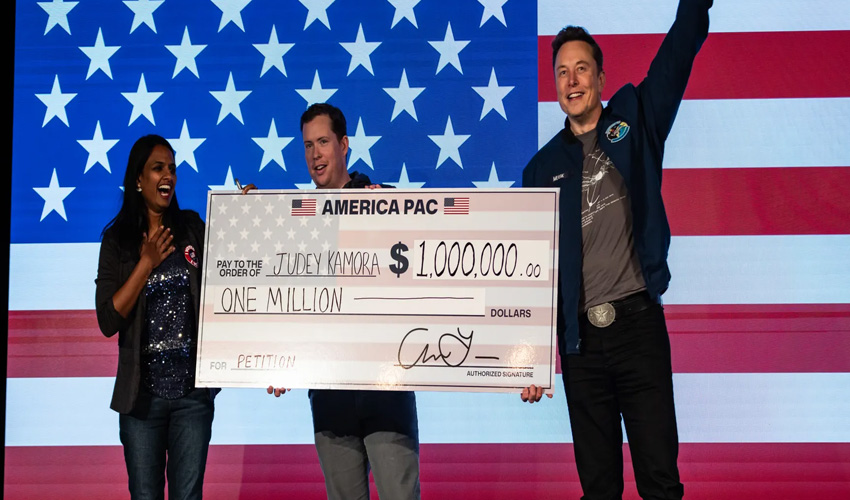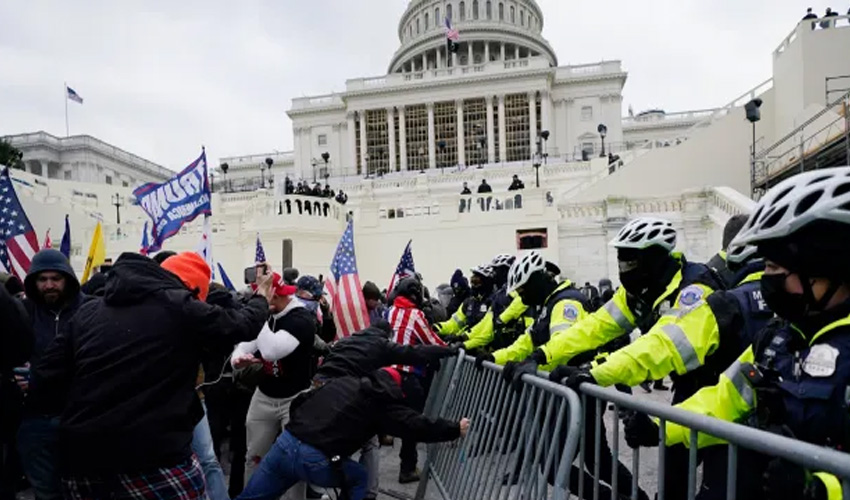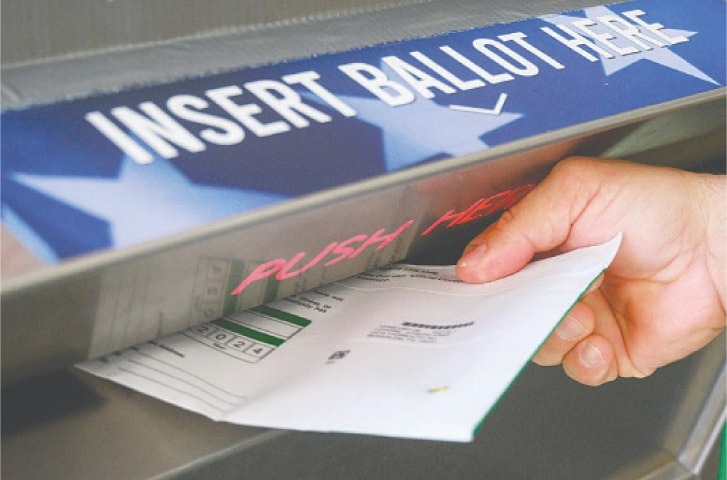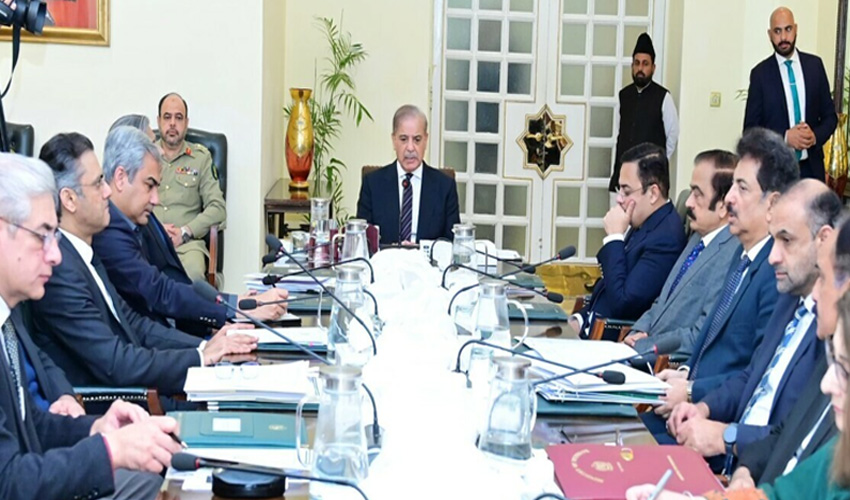As the United States gears up for its 2024 presidential election, the world watches with bated breath. Democratic Vice President Kamala Harris and Republican former President Donald Trump are running neck-and-neck in a race that could shape the trajectory of global politics for years to come. The influence of the U.S. presidency on global affairs is vast, from decisions impacting international security and trade to stances on climate change and technology.
So, who would world leaders prefer to see in the White House? Let’s look at how prominent leaders across the globe view Harris and Trump as potential U.S. presidents.
Russia: Vladimir Putin
Russian President Vladimir Putin’s views on the candidates seem to favour Trump. While he has made some offhand, possibly humorous, remarks about Harris, suggesting she might be less inclined to sanction Russia, Putin’s strategic interests align with Trump.
Analysts believe that Putin sees Trump as someone who may ease military and financial support to Ukraine, a key area of conflict between the U.S. and Russia. Trump’s prior presidency was marked by skepticism towards NATO and Western alliances, which aligned well with Putin’s own objectives of destabilizing NATO and the European Union.
Russia has previously been accused of supporting Trump’s campaign through alleged election interference, both in 2016 and in 2020. This year, U.S. intelligence has suggested that Moscow may still prefer Trump, as his policies might reduce pressure on Russia over Ukraine and ease Western sanctions. Putin’s praise for Trump’s promise to resolve the Ukraine conflict signals a belief that a Trump-led White House could yield favorable terms for Russia in the region.
China: Xi Jinping
Chinese President Xi Jinping has avoided openly backing either candidate, but experts suggest that Beijing may lean slightly towards Harris for a more predictable approach. Trump’s trade war with China included heavy tariffs on Chinese imports, and although President Biden retained some of these, Harris is expected to maintain a steadier stance rather than inflame trade tensions further.
Nonetheless, Trump has spoken of his personal rapport with Xi, and Beijing could see an advantage in Trump’s aversion to alliances that could hamper China’s regional influence. However, a Harris presidency would likely ensure continuity of the Biden administration’s policies, offering consistency in areas such as tech regulations and trade practices. Some Chinese analysts argue that stability in U.S.-China relations under Harris may outweigh the unpredictability Trump brings to the table.
Israel: Benjamin Netanyahu
Israeli Prime Minister Benjamin Netanyahu has maintained close ties with both Trump and Biden, though his public interactions suggest a preference for Trump. Netanyahu often praised Trump’s support for Israel, which included historic moves like recognizing Jerusalem as Israel’s capital and facilitating the Abraham Accords. Their relationship cooled during Biden’s term, yet Netanyahu has continued diplomatic engagements with Trump.
In contrast, Biden has been supportive of Israel’s current conflicts, committing billions in military aid. Harris would likely continue Biden’s approach, supporting Israel but possibly pushing for a more balanced stance regarding Palestinian issues. Netanyahu’s long-standing rapport with Trump, however, suggests he might find a Trump presidency more supportive of Israel’s goals without as much U.S. intervention in internal policy.
Europe and NATO
Across Europe, many leaders seem to prefer Harris, aligning more with her support for international alliances and climate initiatives. Germany’s Chancellor Olaf Scholz and French President Emmanuel Macron both maintain positive diplomatic relations with the Biden administration and may anticipate a similar stance under Harris.
Trump’s frequent criticisms of NATO, along with his threats to pull the U.S. out of the alliance, caused considerable concern in Europe during his first term. Trump also suggested he would pressure NATO allies to increase their defense spending, which could strain European budgets. Harris’s continuity with Biden’s policies suggests a collaborative approach, especially regarding renewable energy and collective defense, key priorities for European nations in the face of current geopolitical shifts.
India: Narendra Modi
Indian Prime Minister Narendra Modi has strategically developed relationships with both Trump and Biden. While Trump was close to Modi during his presidency, the Biden administration’s policies have strengthened India-U.S. ties across defense, technology, and trade. Under Biden, India was designated as a Major Defense Partner, and the two countries initiated collaborative projects in emerging technologies like quantum computing.
Modi’s relationship with the U.S. is likely to remain strong regardless of who wins. Trump’s less interventionist stance on human rights issues could be appealing to Modi’s government, while Harris’s administration might uphold a steady diplomatic approach beneficial to India’s strategic interests. Analysts predict that Modi would appreciate continuity with Harris, though Trump’s familiarity could still serve India well.
South Korea: Yoon Suk Yeol
South Korea’s President Yoon Suk Yeol has not openly supported a candidate but has expressed confidence in the current strong alliance with the U.S. Under Biden, the U.S. has strengthened military ties with Seoul and Tokyo, and the three countries have collaborated closely on addressing North Korea’s nuclear threat and countering China’s influence in the region.
In contrast, Trump’s previous term saw strained relations, as he pressured South Korea to increase its financial support for U.S. troops stationed in the country. Yoon may view Harris as a continuation of the Biden administration’s commitment to regional stability, a crucial point amid rising tensions with North Korea.
Japan: Fumio Kishida
Japanese leaders are wary of Trump’s potential return, given his stance on tariffs and calls for Japan to increase its defense budget. Current Japanese Prime Minister Fumio Kishida is expected to prefer Harris, with whom he could build upon the Biden administration’s policies. Trump’s unpredictability and America-first agenda previously led to challenges in U.S.-Japan relations, though Japan did establish rapport with some Trump administration officials, like former Ambassador Bill Hagerty, a potential Secretary of State pick under Trump.
A Harris administration would bring policy consistency, a trait valued in Japan’s strategic and economic planning. Kishida likely views Harris as a reliable partner, especially as Japan seeks U.S. support amid regional tensions involving North Korea and China.
Australia: Anthony Albanese
Australia has expressed caution about Trump’s return, especially regarding his environmental policies. Australian Prime Minister Anthony Albanese, who has committed to climate action, would likely favor Harris, aligning her administration with global climate commitments. Australia’s trade relations with China also make Trump’s aggressive stance toward Beijing a potential economic risk for Canberra.
The Global Stakes
For many world leaders, Harris represents a continuation of the Biden administration’s steady hand on foreign policy, an appeal for those seeking predictability and diplomatic collaboration. Trump, however, offers a bold, albeit erratic, approach that might suit leaders who prioritize bilateral deals or seek less U.S. oversight on domestic issues. Regardless of the winner, the outcome of the U.S. election will ripple across the world, shaping alliances, trade policies, and the balance of power in key regions.





